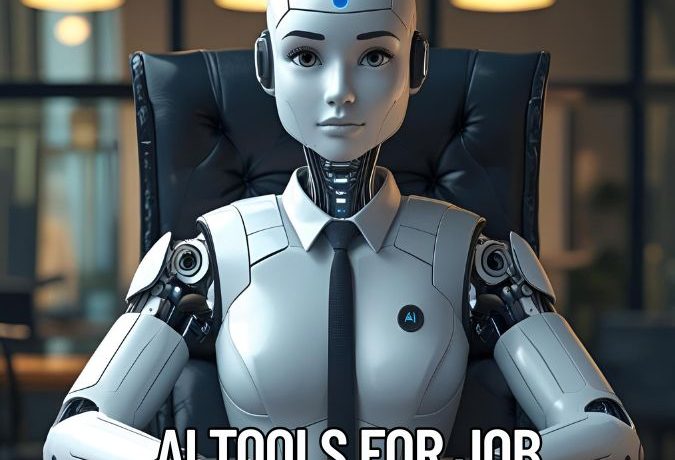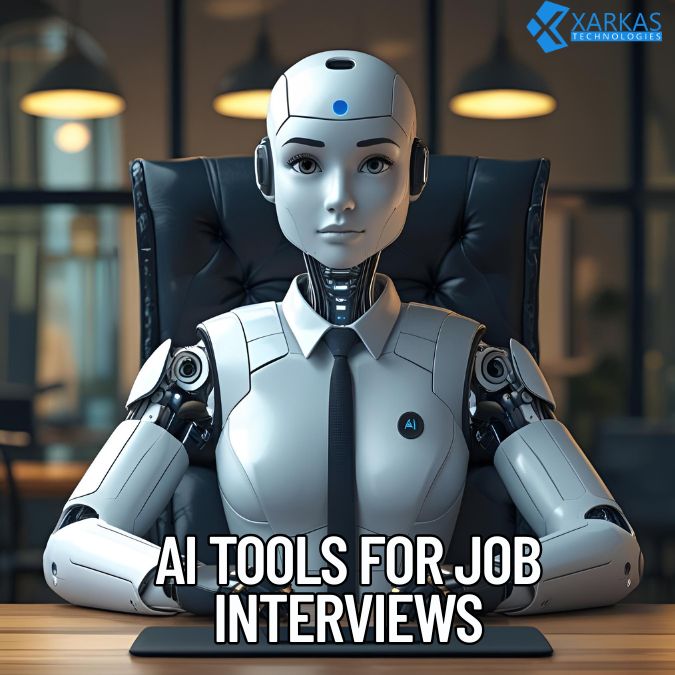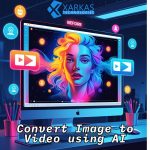
Ultimate Guide: How AI Can Help You Prepare for Job Interviews Like a Pro
In today’s highly competitive job market, artificial intelligence (AI) has become a game-changing tool for candidates who want to ace interviews and land their dream jobs. From practicing mock interviews to analyzing tone and improving answers, AI is revolutionizing the way job seekers prepare. In this article, we uncover how AI helps with interview preparation, and why leveraging it gives you a significant edge.
Table Of Content
- What Is AI Interview Preparation?
- Top Benefits of Using AI for Interview Preparation
- 1. Personalized Mock Interviews
- 2. Real-Time Feedback on Performance
- 3. Enhanced Communication Skills
- Best AI Tools for Interview Preparation in 2025
- 1. Yoodli – AI Speech Coach
- 2. Interview Warmup by Google
- 3. VMock Smart Career Platform
- AI Interview Preparation Across Different Roles
- Technical Roles (Developers, Engineers)
- Managerial Roles (Team Leads, Project Managers)
- Creative Roles (Designers, Writers, Marketers)
- Common Questions AI Helps You Master
- AI-Powered Resume and Cover Letter Enhancements
- How to Use AI to Practice Behavioral Interviews
- Using AI for Interview Anxiety and Confidence Building
- Final Tips for Leveraging AI in Interview Preparation
- Conclusion
What Is AI Interview Preparation?

AI interview preparation refers to the use of machine learning algorithms, natural language processing (NLP), and speech recognition tools to simulate, evaluate, and enhance a candidate’s performance before an actual job interview.
These tools are designed to offer personalized coaching, instant feedback, and data-driven insights that traditional preparation methods simply cannot match.
Top Benefits of Using AI for Interview Preparation
1. Personalized Mock Interviews
One of the most significant advantages of AI is its ability to conduct tailored mock interviews based on your job title, industry, and career level.
Platforms like Interview Warmup (by Google) and HireVue offer real-time questions aligned with your job role. AI analyzes your responses and provides constructive feedback on:
-
Relevance of your answers
-
Clarity and fluency
-
Use of jargon or filler words
-
Emotional tone and confidence level
2. Real-Time Feedback on Performance
AI systems provide instant analysis after each mock interview session. With speech-to-text and natural language processing, tools like Yoodli AI assess:
-
Sentence structure
-
Answer conciseness
-
Non-verbal cues (if video is involved)
-
Repetitive or weak phrasing
This kind of data-driven coaching helps you focus on areas that need immediate improvement.
3. Enhanced Communication Skills
AI-powered platforms train you to speak more clearly, confidently, and concisely. Tools analyze your voice modulation, speech rate, and pronunciation to help reduce common communication errors such as:
-
Speaking too fast or too slow
-
Using filler words like “um”, “like”, “you know”
-
Lacking vocal variety or enthusiasm
This ensures that your communication is not just heard—but truly impactful.
Best AI Tools for Interview Preparation in 2025
1. Yoodli – AI Speech Coach
Yoodli is a cutting-edge AI interview coach that helps you improve both verbal and non-verbal communication. It records your mock interviews and provides deep analytics on eye contact, facial expressions, and word usage.
Key Features:
-
Real-time coaching
-
Grammar and filler word analysis
-
Personalized improvement plan
2. Interview Warmup by Google
This free tool is perfect for anyone starting out. It focuses on industry-specific interview questions and uses AI to highlight areas of strength and weakness in your responses.
Key Features:
-
Industry-custom questions
-
Text-based answer evaluation
-
Immediate performance insights
3. VMock Smart Career Platform
VMock uses AI to provide career services at scale. It delivers automated, resume-based mock interviews with feedback focused on alignment with job requirements.
Key Features:
-
Resume-integrated Q&A
-
AI scorecards
-
Skills benchmarking
AI Interview Preparation Across Different Roles
Technical Roles (Developers, Engineers)
AI tools evaluate not just communication but also technical depth. Platforms simulate system design questions, coding tasks, and logic-based problem solving, with feedback on:
-
Algorithm choice
-
Optimization clarity
-
Communication of technical thought process
Managerial Roles (Team Leads, Project Managers)
For these roles, AI emphasizes:
-
Leadership examples
-
Strategic thinking
-
Decision-making communication
-
STAR method effectiveness (Situation, Task, Action, Result)
Creative Roles (Designers, Writers, Marketers)
Here, AI platforms look at how you present:
-
Creative problem solving
-
Portfolio storytelling
-
Impact-focused results
-
Personal branding articulation
Common Questions AI Helps You Master
Some of the most frequently asked interview questions AI coaches are optimized to help you answer include:
-
“Tell me about yourself.”
-
“What are your strengths and weaknesses?”
-
“Describe a time you handled a challenge.”
-
“Why do you want to work here?”
-
“Where do you see yourself in 5 years?”
AI tools guide you in constructing answers that are structured, authentic, and outcome-driven—critical for making a lasting impression.
AI-Powered Resume and Cover Letter Enhancements
Some platforms combine interview training with AI resume optimization. These tools analyze:
-
Keyword relevance for Applicant Tracking Systems (ATS)
-
Job description alignment
-
Tone and professionalism
-
Formatting and structure
Top tools for this include Rezi, Kickresume AI, and Teal HQ.
How to Use AI to Practice Behavioral Interviews
Behavioral interviews focus on your past experiences and soft skills. AI can simulate these scenarios and evaluate:
-
Clarity of storytelling
-
Emotional intelligence
-
Use of the STAR method
-
Consistency across multiple answers
You’ll also receive a sentiment analysis to detect whether your responses sound overly negative, unconvincing, or overly generic—allowing you to fine-tune your delivery.
Using AI for Interview Anxiety and Confidence Building
Interview anxiety is common. AI tools now include confidence-level tracking and even virtual reality simulations that let you practice in a controlled, realistic environment. These experiences:
-
Help desensitize you to high-pressure settings
-
Build familiarity with different interviewer types
-
Train you to adapt on the fly
Final Tips for Leveraging AI in Interview Preparation
-
Practice daily with a variety of scenarios
-
Record and review each mock session
-
Use multiple AI platforms for different perspectives
-
Pair AI feedback with human coaching, when possible
-
Customize responses for specific companies and industries
Conclusion
Incorporating AI into your interview preparation can dramatically increase your chances of landing your next role. By offering personalized, data-backed insights, AI empowers you to present the best version of yourself—both confidently and convincingly.
If you’re not using AI to prepare for interviews in 2025, you’re missing out on the smartest edge in today’s competitive job market.







No Comment! Be the first one.